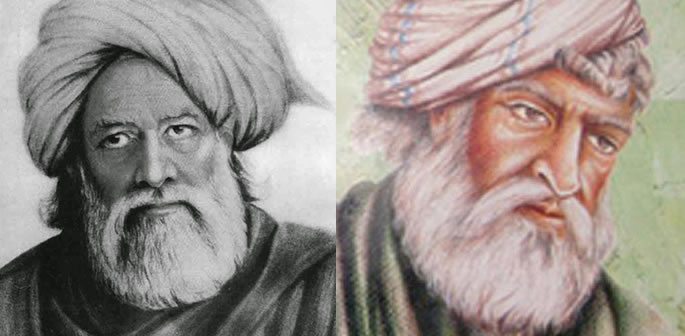
Bulleh Shah’s Sufi lyrics challenge social constructs and dualities while undermining the rifts between religions.
By Hunardeep Kaur
“Paapi na sudharmi na
Paap pun ki raah na jaana
Bulleh Shah jo har chitt laage
Hindu Turk doojan tiyaage”
(I am not a sinner, nor am I virtuous. I do not know about
The path of sin and merit.
Bulleh Shah, the mind that is fixed on God leaves behind
The duality of Hindu and Turk.)
In a society that is becoming deeply polarized and divisive, where the subsequent hate has become all the more pervasive, where violence, in all its forms, is being perpetrated along the lines of religion and caste, and where religious sites become those of great tension and conflict, the need to rethink the philosophical, ideological, and cultural aspects of the collective consciousness of its people gains great significance. Bulleh Shah, an eighteenth-century Punjabi Sufi poet and the syncretic, universalistic and humanistic tradition that his oeuvre embodies becomes relevant in the context of the increasingly vicious milieu that we find ourselves in, in contemporary India. His Sufi lyrics challenge social constructs and dualities while undermining the rifts between religions by espousing oneness with a God who, according to Shah, does not exist in places of pilgrimage but is rather present within us, taking on the form of an all-encompassing love.
By affirming faith in God, who is also seen as the beloved, and not in the socially-constructed and culturally-mandated rituals and rites, Bulleh Shah presents a philosophy that is at once humanistic and all-embracing. In his lyrics, Bulleh Shah makes a highly personal and spiritual connection with God and reminds us of our inner selves that have been lost in the humdrum of our artificial, exterior existence. In one of his well-known verses, he dismisses the idea that spirituality can be attained by undertaking pilgrimages; he rather puts forth that it is only by destroying one’s ego in order to unite with God that one attains a state of true spiritual being.
Mecca giyan gal mukdi nahin, jichar dilon na aap mukaiye
Ganga giyan paap nahin vaDde, bhaaven sau sau gote layiye
Gaya giyan gal mukdi nahin, bhaaven kitne pinde bharaiye
Bulleh Shah gal mukdi tahin, jad mainu khadiyan lutaiye
(The matter is not finished by going to Mecca, so long
As you do not finish off the self from the heart. Sins
Are not shed by going to the Ganges, even though you
Immerse yourself hundreds of times. The matter is
Not finished by going to Gaya, no matter how many
Offerings you make to the dead. Bulleh Shah, the
Matter is finished when the ego is destroyed.)
The underlying philosophical preoccupation of Bulleh Shah’s works seems to be a transcendent unity that is marked by a kind of love that goes beyond society’s artificial distinctions and is all-encompassing in nature. The message of universal equality that lies underneath the idea of unity is much needed in our times that are marked by a fragmentation of not just the self but also the society, where the hegemony of certain communal and caste-based identities has proved to be violent, sectarian and oppressive, rendering faith not as a personal matter but a politicized and communalized force that is so volatile that it has become altogether disassociated from the ideas of transcendental unity and oneness of being.
Not only does Bulleh Shah’s poetry explore the unity of being beyond the social categories and hierarchies, but it also ruminates over human existence within the realm of spirituality. It reminds us constantly of the inevitability of death, thereby foregrounding humility and the universality of the human condition while subverting and undermining the ideas of power by bringing to light its transient nature. He writes:
Kithe mir malak sultana, sabbhe chaD chaD gaye ThikaNa
Koi maar na baithe ThaNa, Lashkar da jinha shumar nahin
(Where are those princes, kings and emperors? All have
Quit their royal residences. Those whose armies were
Uncountable cannot capture a mere police station)
Today, those in power need to be asked the questions Bulleh Shah poses in this lyric. The unrestrained tyrannical, oppressive rule is bound to come to an end, for nothing is invincible in the face of death. This is an important lesson that the current political dispensation has forgotten in its myopic hubris and bigotry. At a time when language has been narrowly confined to religion and thus been polarized, Bulleh Shah becomes an interesting and integral example of the syncretism that seems to have been diluted amid the religious polarization and downright hatred. Though born into Islam, Shah chose Gurmukhi script to communicate his message across to the common people. In choosing to write in Punjabi, rather than Persian, he was bringing his philosophy of oneness and unity closer home while also positing himself within this very tradition that he espoused.
In conclusion, the words of Christopher Shackle, a translator of Bulleh Shah’s lyrics, capture the essence of his work perfectly, “Appealing at several levels to so many of the deepest human aspirations, to a universal understanding of the meaning of human existence in a divine world, Bulleh Shah’s assimilation of many diverse elements into his poetic expression of the perennial philosophy of the unity of being makes him an outstanding interpreter of the transcendent, not just for Punjabis but for all of us”. Nothing encapsulates Bulleh Shah’s egalitarian, humanistic vision better than these lines:
Bulleh Shah, chal othe vasiye, jithe saare hovan anhe
Na koyi saaDi zaat pachaNe, na koi saanu manne
(Bulleh Shah, let us go to the place where everyone is blind. No one recognizes our caste, nor does anyone revere us.)
__________________
Hunardeep Kaur is a student of English Literature at Lady Shri Ram College for Women, University of Delhi. She is interested in looking at the world through the lens of art, literature and culture. She finds solace in poetry and sunsets.
Courtesy: Dhaara Magazine (Published on December 16, 2021)